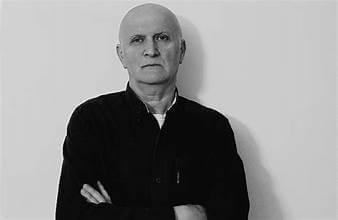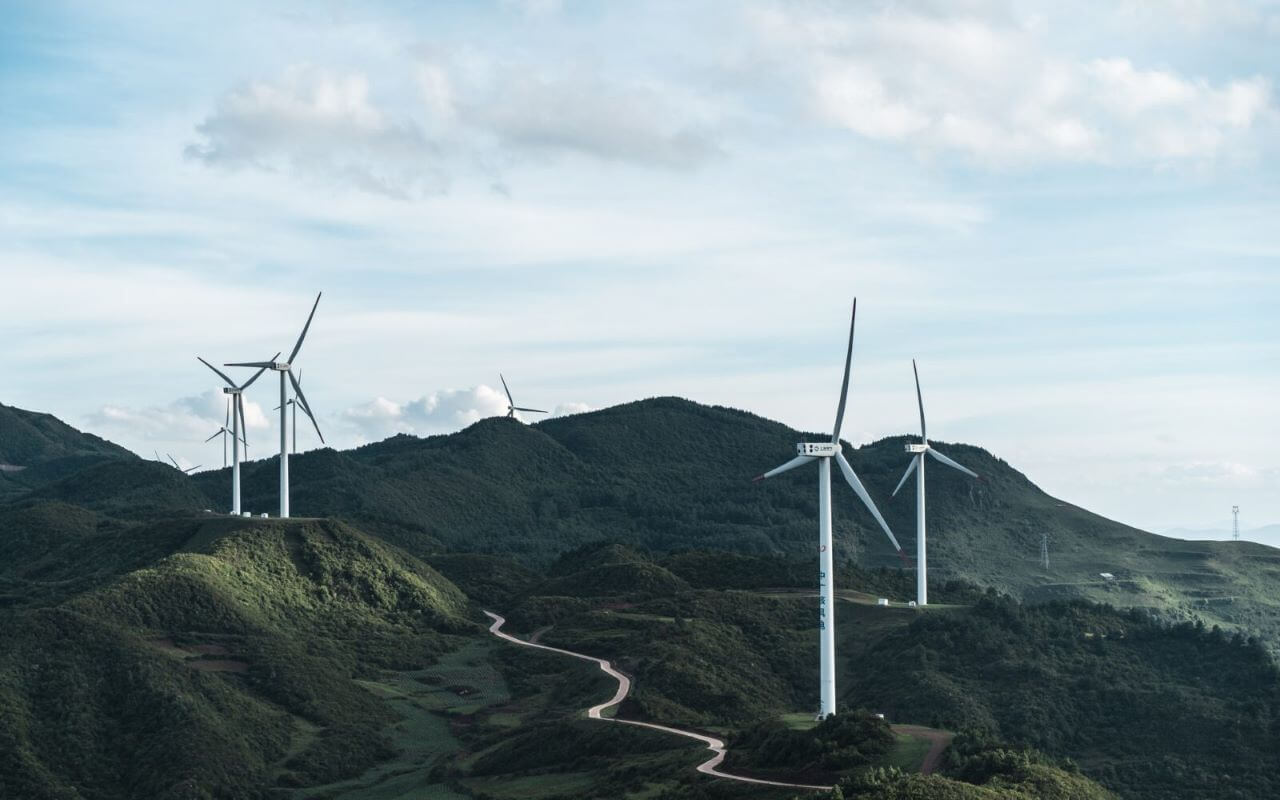The electricity generated in the Ivovik wind farm will not be used by domestic consumers; instead, it will be sold on the foreign market. In this way, Chinese investors will make millions in profit at the expense of Bosnian citizens. From the production of green energy from 20 wind turbines, the population of Bosnia and Herzegovina will only receive minimal amounts from concession fees, while the smell of burnt coal from electricity will continue to be consumed despite declarative increases in the percentage of energy obtained from renewable sources in statistical reports.
Written by: Slađan Tomić and Alena Beširević
With an annual production of 259 GWh of electricity generated from 20 wind turbines with a total capacity of 84 MW installed on the Ivovik hill between Livno and Tomislavgrad, the Ivovik wind farm becomes the project with the highest production of electricity from renewable sources in our country.
“This will help the country optimize its current energy structure focused on coal, achieve carbon neutrality as soon as possible, and create direct opportunities for employment and business, as well as deepen economic and trade cooperation between China and BiH”, stated on the official website of the Ivovik Wind Farm.
However, the Ivovik Wind Farm forgets to mention that this energy will not be sold on the domestic but rather in the foreign market. The Ivovik Wind Farm is the first Chinese investment in BiH in which, as stated on the same page, Chinese state-owned companies – Power Construction Corporation of China (POWERCHINA) and China General Technology (Group) Holding Co., Ltd (GENERTEC) jointly invest “with the aim of bringing sustainable, reliable, and clean energy to the people of Bosnia and Herzegovina”.
Energy experts’ analyses indicate that these noble intentions of investors are merely declarative.
“The Ivovik Wind Farm is privately owned. The Chinese investor has not signed any agreement to sell electricity to the power system of BiH. Therefore, we can conclude that the electricity produced at the Ivovik Wind Farm will be intended for the foreign market, i.e., the investor will sell it where it is more expensive”, states energy expert Mirza Kušljugić.
Thus, the electricity produced by 20 wind turbines at Ivovik will only declaratively contribute to increasing the percentage of electricity production from renewable sources in our country. Green energy will not stay in our country. Instead of clean energy, the majority of our country’s population will continue to use electricity obtained from fossil fuels because there are no obligations to sell electricity or part of the energy produced at Ivovik to any of the energy systems in BiH. Kušljugić notes that the Chinese investor was favoured in other ways as well.
“The transmission system operator still does not charge grid fees, so the Chinese investors will also get free electricity transportation from the wind farm”, emphasizes Kušljugić.
According to calculations by the Direkt portal, the Chinese investor will earn around 16 million euros annually from the Bosnian-Herzegovinian wind potential. Livno will receive about 67,308 euros, while Tomislavgrad will have around 152,972 euros annually.
Investor Gets Millions, Citizens Get Crumbs
 “The essence of private wind farms is the significant profit for investors with a meagre amount of concession to the local community, namely the municipal authorities, which grant concessions under the veil of non-transparent, direct, self-initiated offers. These concessions amount to up to 2% of the sold electricity. So when an investor secures a good location for a paltry concession, they can sell the electricity to whoever they want and likely export it as well. This is a path to the ‘colonization’ of public goods, namely wind potential”, says electrical engineer and energy analyst Almir Muhamedbegović.
“The essence of private wind farms is the significant profit for investors with a meagre amount of concession to the local community, namely the municipal authorities, which grant concessions under the veil of non-transparent, direct, self-initiated offers. These concessions amount to up to 2% of the sold electricity. So when an investor secures a good location for a paltry concession, they can sell the electricity to whoever they want and likely export it as well. This is a path to the ‘colonization’ of public goods, namely wind potential”, says electrical engineer and energy analyst Almir Muhamedbegović.
He emphasizes that such projects do not contribute to energy security because private investors have no obligations to supply this electricity to the public.
“It is therefore important to change the concession terms so that investors must sell a portion of the electricity to the power utilities at public supply prices, say 30-40%”, Muhamedbegović believes.
From the very beginning, the project has been accompanied by numerous activities shrouded in secrecy. The project, valued at around 137 million euros, has so far been marred by non-transparent processes regarding ownership transfer, dubious practices in issuing concessions and other permits, as well as legal disputes over land ownership that the government, under suspicious and possibly illegal circumstances, has allocated to foreign investors.
The Ivovik wind farm project was initiated by Ivica Matković, an entrepreneur from Livno, who later gifted the company to his brother Stjepan Matković, who passed away in 2015. After his death, the Ivovik VE company passed into the ownership of his children, as previously reported by journalist Semira Degirmendžić in a 2022 article published on the Fokus portal.
Stjepan Matković served as Minister of Agriculture, Water Management, and Forestry in the Livno Canton Government from 2006 to 2012. During his tenure, specifically in 2008, the government of this canton granted a concession for the Ivovik wind farm to the company “Ivovik” from Livno. The political connections and influences in issuing permits are more than evident.
The company VE Ivovik was sold by members of the Matković family to Chinese investors in 2014 for around 8 million KM, as reported by Zinaida Đelilović in an article on the Žurnal portal, at which point the company headquarters were transferred to Sarajevo.
Currently, the owners of this company listed in the business registries include Ekrem Nanić from Banja Luka, Cntic Capital Co Limited from Hong Kong, and the Luxembourg-based company Wind Power S.à r.l. Previously, the name of the company Sinohydro Holding from Hong Kong was listed as one of the founders, but they transferred their ownership shares to the Luxembourg-based company in September of last year.
There has been public debate about how the Livno Canton Government approved the transfer of the concession from local entrepreneurs to Chinese companies without attempting to negotiate better terms for the local population – increasing the concession fees and the percentage of revenue from electricity sales. There are also stories of allegedly illegal deletions of landowner names on the Ivovik Hill and supposedly inadequate environmental impact studies, which omitted or neglected the negative consequences that the construction of the Ivovik wind farm will have on the environment.
If we are allowed to judge based on the known practices of some companies involved in the Ivovik project, there is no reason to believe in the best intentions of the investors towards the citizens or the environment.
The design firm Bičakčić d.o.o. along with I.D.E.A. d.o.o. Sarajevo, Saraj Inženjering d.o.o. Sarajevo, Emna d.o.o. Sarajevo, Sarajevo, IBIS d.o.o. Zavidovići, and the company Forma-AGD d.o.o. Zenica, were among the authors of the Ivovik wind farm project. For this job, the company owned by the president of the professional organization of power engineers in the region CIGRE (SEERC), the president of the Assembly of the Islamic Community in BiH, former Prime Minister of the FBiH, and former director of Elektroprivreda BiH Edhem Bičakčić, charged, if official website data is to be believed, 450,760.00 KM.
Although often occupying various positions, Bičakčić’s company mainly relied on the political authority of its owner and the benefits of the legislative framework, which implied pure profit from renewable energy sources through guaranteed purchase prices for electricity ten times higher than those of electricity produced from fossil fuels and incentives for kilowatts from renewable sources.
The Ivovik Wind Farm project has been embroiled in controversy, particularly regarding its ownership and the conduct of its key figures.
Ivica Matković, Livno entrepreneur, initially spearheaded the project. After his passing, the company transitioned to his brother Stjepan Matković’s ownership, who held governmental positions in Livno Canton. During his tenure as Minister of Agriculture, Water Management, and Forestry, the Livno Canton Government granted a concession for the Ivovik wind farm to the company “Ivovik” from Livno. These connections hint at potential political influence in the project’s development.
Subsequently, the company was sold to Chinese investors, raising questions about the transparency of this transaction. The new owners include entities from Banja Luka, Hong Kong, and Luxembourg. The transfer of ownership raised concerns about the fairness of the concession transfer and highlighted alleged irregularities in land ownership and environmental impact assessments.
The involvement of Edhem Bičakčić’s company, despite his controversial past, added another layer of scepticism. Bičakčić had faced restrictions on holding positions in Elektroprivreda FBiH due to alleged misuse of power, funnelling public funds to political parties. However, these restrictions were later lifted, allowing his company to participate in various energy projects. Some of these projects have been marred by murky processes in obtaining concessions, lack of transparency in public consultations, and other malpractices, as detailed by Tačno.net.
This mode of operation, according to energy expert Muhamedbegović, appears to prioritize profits over public benefit. Projects are initiated, and permits are obtained, with little regard for the wider societal impact, often resulting in negligible benefits for the local population.
Furthermore, the involvement of Saraj Inženjering d.o.o. Sarajevo, whose previous owner Nedžad Branković faced corruption allegations alongside Bičakčić, raises additional concerns. The company’s sale to avoid conflicts of interest and its subsequent ownership by individuals involved in legal controversies further tarnishes the project’s reputation.
Overall, these controversies cast doubt on the project’s integrity and its promises of providing green energy to Bosnia and Herzegovina. Instead of benefiting from renewable energy, citizens may continue to rely on expensive electricity generated from fossil fuels, while the profits from the Ivovik wind farm project largely benefit foreign investors.






